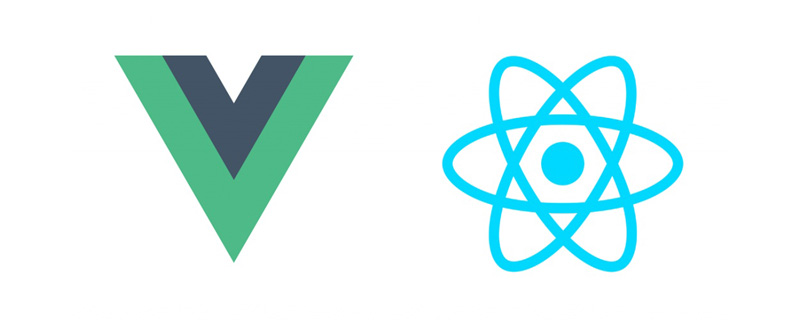 Web Front-end
Web Front-end Vue.js
Vue.js How to implement data visualization techniques such as line charts and curve charts in Vue
How to implement data visualization techniques such as line charts and curve charts in VueVue is a popular JavaScript framework that is widely used to build modern web applications. Data visualization is one of the essential technologies in web applications, and line charts and curve charts are one of the common data visualization techniques. In this article, I will introduce how to use Vue to implement line charts and curve charts.
1. Use third-party chart libraries
Vue has many third-party chart libraries that can be used. These chart libraries provide a wealth of chart types and configuration options, making it possible to realize line charts and curve charts. It's very easy. In this article, we will use the Vue-chart.js chart library to implement line charts and curve charts.
First you need to install vue-chart.js in the project:
npm install vue-chartjs chart.js --save
Introduce the required chart type in the component, such as line chart:
import { Line } from 'vue-chartjs'Then in the component Write chart rendering logic and pass in the corresponding data and options:
export default {
extends: Line,
mounted () {
this.renderChart({
labels: ['January', 'February', 'March', 'April', 'May', 'June', 'July'],
datasets: [
{
label: 'Data One',
backgroundColor: '#f87979',
data: [40, 39, 10, 40, 39, 80, 40]
}
]
}, {responsive: true, maintainAspectRatio: false})
}
}2. Manually implement line charts and curve charts
If you don’t want to use a third-party chart library, you can also manually implement line charts and graph.
First, define a canvas element in the Vue component:
<canvas id="myChart"></canvas>
Then write the chart rendering logic in the component, and use JavaScript code to operate the canvas element to draw a line chart or curve chart.
For example, the following is an example code for drawing a line chart:
export default {
mounted() {
const ctx = document.getElementById('myChart').getContext('2d')
const myChart = new Chart(ctx, {
type: 'line',
data: {
labels: ['January', 'February', 'March', 'April', 'May', 'June', 'July'],
datasets: [{
label: 'Data One',
data: [40, 39, 10, 40, 39, 80, 40],
borderColor: 'rgb(255, 99, 132)',
borderWidth: 1
}]
},
options: {}
})
}
}For curve charts, you only need to set type to 'line'.
In summary, it is easier to use a third-party chart library, but drawing charts manually can better master the principles and techniques of drawing. Regardless of the method used, line and line charts can be easily implemented in Vue.
The above is the detailed content of How to implement data visualization techniques such as line charts and curve charts in Vue. For more information, please follow other related articles on the PHP Chinese website!
 vue中props可以传递函数吗Jun 16, 2022 am 10:39 AM
vue中props可以传递函数吗Jun 16, 2022 am 10:39 AMvue中props可以传递函数;vue中可以将字符串、数组、数字和对象作为props传递,props主要用于组件的传值,目的为了接收外面传过来的数据,语法为“export default {methods: {myFunction() {// ...}}};”。
 聊聊vue指令中的修饰符,常用事件修饰符总结May 09, 2022 am 11:07 AM
聊聊vue指令中的修饰符,常用事件修饰符总结May 09, 2022 am 11:07 AM本篇文章带大家聊聊vue指令中的修饰符,对比一下vue中的指令修饰符和dom事件中的event对象,介绍一下常用的事件修饰符,希望对大家有所帮助!
 如何覆盖组件库样式?React和Vue项目的解决方法浅析May 16, 2022 am 11:15 AM
如何覆盖组件库样式?React和Vue项目的解决方法浅析May 16, 2022 am 11:15 AM如何覆盖组件库样式?下面本篇文章给大家介绍一下React和Vue项目中优雅地覆盖组件库样式的方法,希望对大家有所帮助!
 react与vue的虚拟dom有什么区别Apr 22, 2022 am 11:11 AM
react与vue的虚拟dom有什么区别Apr 22, 2022 am 11:11 AMreact与vue的虚拟dom没有区别;react和vue的虚拟dom都是用js对象来模拟真实DOM,用虚拟DOM的diff来最小化更新真实DOM,可以减小不必要的性能损耗,按颗粒度分为不同的类型比较同层级dom节点,进行增、删、移的操作。


Hot AI Tools

Undresser.AI Undress
AI-powered app for creating realistic nude photos

AI Clothes Remover
Online AI tool for removing clothes from photos.

Undress AI Tool
Undress images for free

Clothoff.io
AI clothes remover

AI Hentai Generator
Generate AI Hentai for free.

Hot Article

Hot Tools

SublimeText3 Linux new version
SublimeText3 Linux latest version

WebStorm Mac version
Useful JavaScript development tools

Dreamweaver CS6
Visual web development tools

SAP NetWeaver Server Adapter for Eclipse
Integrate Eclipse with SAP NetWeaver application server.

SublimeText3 Chinese version
Chinese version, very easy to use









